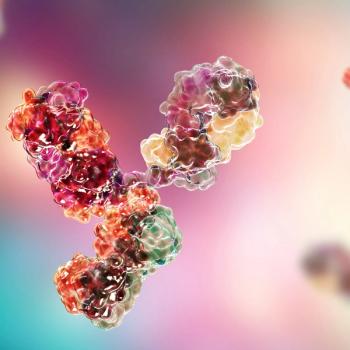
Parkinson Disease
Latest News

Syn-One Test Reports High Sensitivity and Specificity Across Multiple Synucleinopathies
Latest Videos

CME Content
More News

Andrew Siderowf, MD, director of the Parkinson disease and movement center at the University of Pennsylvania, talked about available therapeutics and potential future therapies in research for Parkinson disease.

Despite years of use of gold-standard therapy levodopa, therapeutic development in Parkinson disease has advanced rapidly and expanded to numerous novel pathways and targets.

The director of the Memory & Cognitive Disorders Clinic at Hoag Neuroscience Institute provided detail on an educational course that examined medication management for Parkinson disease psychosis.

As therapeutic development has advanced in Parkinson disease management, the introduction of on-demand options have extended ON time for patients and altered the paradigm of care.

Psychosis is estimated to affect more than half of patients with Parkinson disease, and there is a growing need for improved management and therapeutic development.

The holy grail of neurodegenerative disorders would be to alter or halt the progression of the disease. For years, the discussion has swirled around stem cells and gene therapy, and they remain potential options for the future.

Findings from a recent published study observed lower quality of life in Black, Hispanic, and Asian patients with Parkinson disease compared with White patients.

New research confirms a key disease pathology identified through examining spinal fluid in patients with Parkinson disease.

The neurosurgeon at Marcus Neuroscience Institute, Baptist Health, provided perspective on the advances of DBS and other invasive procedures for patients with degenerative disorders. [WATCH TIME: 4 minutes]

Positive phase 2 data on CVN424, NETSseq platforms, and CVN417, a novel treatment for Parkinson disease, were presented at AD/PD 2023 International Conference.

New data demonstrated the potential of a new class of oral, small molecule inhibitors that target the fleeting intermediates at the core of neurodegeneration in Parkinson disease.

Statistically significant improvements in several quantitative test measures of episodic memory, attentiveness, and depressive emotional bias were observed in patients treated with clenbuterol and nadolol.

Test your neurology knowledge with NeurologyLive®'s weekly quiz series, featuring questions on a variety of clinical and historical neurology topics. This week's topic is Parkinson disease (PD).

In honor of Parkinson Disease Awareness Month, Hubert Fernandez, MD, director of the Center for Neurological Restoration at Cleveland Clinic, provided perspective on the advances in the care for the neurodegenerative disorder.

Despite a pause in the trial due to the COVID-19 pandemic, patients who opted to continue treatment into the open-label extension demonstrated significant improvements in Parkinson disease dementia symptoms for up to 48 weeks.

Over a 12-week treatment period, patients with Parkinson disease on light therapy demonstrated statistically significant improvements of 58% and 40% in lower and upper limb coordination and movement.

The vice president of Health Economic and Outcomes Research at Acadia Pharmaceuticals provided perspective on the negative effects seen from quetiapine and how the knowledge of pimavanserin has improved since approval. [WATCH TIME: 5 minutes]

If approved, ABBV-951 will become the first subcutaneous delivery of carbidopa/levodopa, often considered the standard of care for symptom management for patients with Parkinson disease.

The vice president of Health Economic and Outcomes Research at Acadia Pharmaceuticals discussed the ongoing challenges with lowering mortality in Parkinson disease, and the need to improve caregiver burden. [WATCH TIME: 4 minutes]

The vice president of Health Economics and Outcomes Research at Acadia Pharmaceuticals provided perspective on the mechanistic advantages of pimavanserin over atypical antipsychotics to treat Parkinson disease psychosis. [WATCH TIME: 2 minutes]

Frailty domains such as exhaustion, slow gait speed, low grip strength, and low physical activity were all associated with incident Parkinson disease.

The director of functional neurosurgery at Baptist Health Miami Neuroscience Institute provided perspective on the growth of high intensity focused ultrasound and the lessons learned when treating essential tremor.

Findings showed that global cognition declines in the prediagnostic period in men but not women with incident Parkinson disease, further indicating cognitive heterogeneity in the prodromal period by sex.

The senior vice president and chief scientific officer of the Parkinson’s Foundation discussed the potential for new therapies that target genetically mutated forms of Parkinson disease. [WATCH TIME: 3 minutes]

The international study on genetic testing and counseling, PD GENEration, is currently at the halfway mark of its goal of 15,000 participants.














